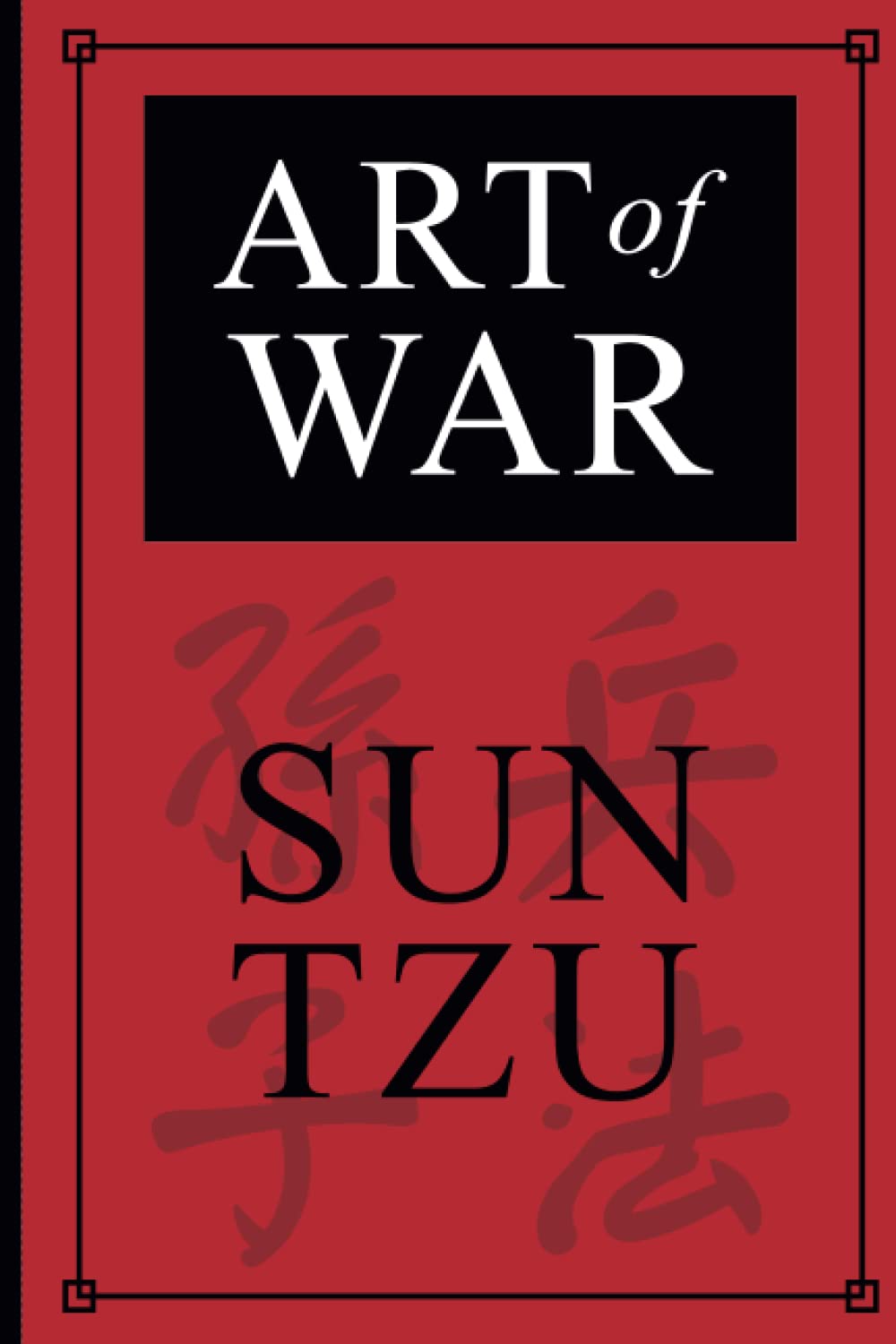The Art of War
The art of war teaches us to rely not on the likelihood of the enemy’s not coming, but on our own readiness to receive him; not on the chance of his not attacking, but rather on the fact that we have made our position unassailable.

According as circumstances are favorable, one should modify one’s plans.
Calculate the odds with you and against you, and play those games or fight those battles where you have the highest likelihood to win.
The enlightened ruler lays his plans well ahead.
Don’t fight unless the position is critical. Anger may in time change to gladness, annoyance to content. But a kingdom that has once been destroyed can never come again into being; nor can the dead ever be brought back to life.
All warfare is based on deception
When able to attack, we must seem unable.
When using our forces, we must seem inactive.
When we are near, we must make the enemy believe we are far away.
When far away, we must make him believe we are near.
Essential elements of a victory
He will win; who knows when to fight and when not to fight.
He will win; who knows how to handle both superior and inferior forces.
He will win; who has prepared himself.
Know yourself and others
It is precisely when a force has fallen into harm’s way that it is capable of striking a blow for victory.
If you know the enemy and know yourself, you need not fear the result of a hundred battles.
If you know yourself but not the enemy, for every victory gained, you will also suffer a defeat.
If you know neither the enemy nor yourself, you will succumb in every battle.
Get the odds in your favor
What enables a person to achieve things beyond the reach of ordinary men, is foreknowledge.
The good fighters first put themselves beyond the possibility of defeat, and then wait for an opportunity to defeat the enemy.
Being strong and getting the odds in your favor is in our hands.
The opportunity to defeat the enemy is provided by the enemy himself.
If, in the midst of difficulties, we are always ready to seize an advantage, we may free ourselves from misfortune.
Avoid Stupidity
There are roads that must not be followed, armies that must not be attacked, towns that must not be besieged, and positions that must not be contested.
Victorious strategist only seeks battle after the victory has been won.
He wins his battles by making no mistakes.
Making no mistakes is what establishes the certainty of victory.
When in a difficult country, do not encamp. Do not linger in dangerously isolated positions. (Same goes for your mind and negative thoughts)
Where to fight
Knowing the place and the time of the coming battle, we may concentrate from the greatest distances, and long before, in order to fight.
The spot where we intend to fight must not be made known, for then the enemy will have to prepare against a possible attack at several different points, and his forces being thus distributed in many directions, the numbers we shall have to face at any given point will be proportionately few.
A soldier’s spirit is keenest in the morning, by noonday it has begun to flag, and in the evening, his mind is bent only on returning to camp. A clever general, therefore, avoids an army when its spirit is keen, but attacks it when it is sluggish and inclined to return, and does the opposite with his own army. This is the art of studying moods.
It is a military axiom not to advance uphill against the enemy, not to oppose him when he comes downhill.
The Art of Moving (Change)
Just as water retains no constant shape, so in warfare, there are no constant conditions.
We are not fit to lead an army on the march unless we are familiar with the face of the country - its mountains and forests, its pitfalls and cliffs, its marshes and swamps. (Becoming a team lead without having prior experience on software projects). We shall be unable to turn natural advantage to account unless we make use of local guides.
Disciplined and calm, to await the appearance of disorder and hubbub amongst the enemy.
Do not reveal much
In war, conceal your thoughts, feelings, emotions, and you will succeed.
Whether to concentrate or to divide your troops must be decided by circumstances.
Ponder and Deliberate before you make a move.
Dangerous faults which affect a general
- Recklessness: leads to destruction
- Cowardice: leads to capture
- Hasty temper: provoked by insults
- Delicacy of honour: Sensitive to shame
- Attachments: Exposes him to worry, and anxiety
The test of great general consists of
- Estimating the adversary
- Controlling the forces for victory
- Shrewdly calculating difficulties, dangers, and distances
- Not only knowing this stuff but also putting it into practice
- The general who advances without coveting fame and retreats without fearing disgrace, whose only thought is to protect his objective and do good service for his mission.
All men can see the tactics whereby I conquer, but what none can see is the strategy out of which victory is evolved.
The art of war teaches us to rely not on the likelihood of the enemy’s not coming, but on our own readiness to receive him; not on the chance of his not attacking, but rather on the fact that we have made our position unassailable.